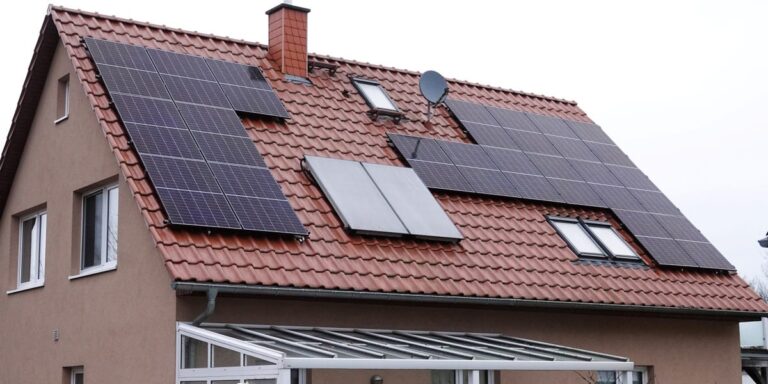- US solar power companies have accused Chinese companies in Southeast Asia of dumping cheap solar panels on the market.
- An oversupply of solar panels has caused prices to halve over the past year, dropping to 10 cents per watt.
- U.S. solar companies want the Biden administration to impose tougher tariffs on imports.
The world is flooded with solar panels as Chinese-owned companies flood the market with cheap exports.
Now, seven U.S. solar companies are fighting back, arguing that they are a serious threat to U.S. efforts to build its own manufacturing sector.
Companies including Qcells, First Solar and Swift Solar on Wednesday called on the Biden administration to impose tariffs on solar cells in four Southeast Asian countries. U.S. solar power companies allege that Chinese-owned companies with operations in Cambodia, Malaysia, Thailand and Vietnam are illegally infringing on their markets.
The request follows an unprecedented wave of imports from the region last year. Together, these four countries accounted for about 80% of U.S. solar panel imports in the second half of 2023, according to S&P data. There are currently 18 months worth of solar panels sitting in a warehouse, and prices have halved over the past year to 10 cents per watt. In Germany, the panels are so cheap that they are used to line garden fences.
“Historically, we have relied on foreign oil from adversary countries,” Tim Brightbill, a partner at Wiley Lane LLP who represents solar companies, told reporters. “We shouldn’t make the same mistake with solar power. Solar power was invented here and perfected here. There’s no reason the United States should rely on Chinese companies.”
The petition by U.S. solar companies comes at a critical time for President Joe Biden. During his campaign, he has touted how his policies to tackle the climate crisis are creating jobs. He has announced more than $111 billion in investments in renewable energy manufacturing projects alone, largely driven by tax cuts from the Inflation Control Act.
But U.S. solar manufacturers argue that without stronger protections their business cannot compete with China, which outstrips U.S. investment by hundreds of billions of dollars a year. In February, Massachusetts-based company Cubic PV canceled plans for a new factory and cut its workforce in half, citing the collapse in solar power prices.
Industry analysts estimate that China accounts for more than 80% of the world’s solar power production, with much of the rest produced in Southeast Asia and financed by companies headquartered in China.
U.S. trade policy prevents direct imports of solar panels from China. But the Commerce Department last year found five Chinese companies were shipping products through Southeast Asian countries to avoid high taxes at the U.S. border. Despite the study’s findings, the Biden administration held off on imposing tariffs, with the two-year exemption set to be reinstated in June. The exemption was originally put in place to allow domestic manufacturers to expand their operations while allowing the U.S. to continue expanding solar power to meet climate goals.
But in recent weeks, administration officials, including Treasury Secretary Janet Yellen, have said the United States is considering new strategies, such as tariffs, to counter China’s dominance of green technology.
A petition by U.S. solar companies, known as an anti-dumping and countervailing duty case, could lead to that. This launches a year-long investigation by the U.S. Department of Commerce and the International Trade Commission. These agencies will not only consider subsidies from the Chinese government, but also solar power subsidies from Southeast Asian countries. This investigation will help determine whether solar panels were being sold in the U.S. for less than the cost of production.
The Chinese side denied the concerns. After Yellen met with Chinese Premier Li Qiang in April, her office told the New York Times that “the development of China’s new energy industry will support the global green and low-carbon transition.” He will make an important contribution.”

